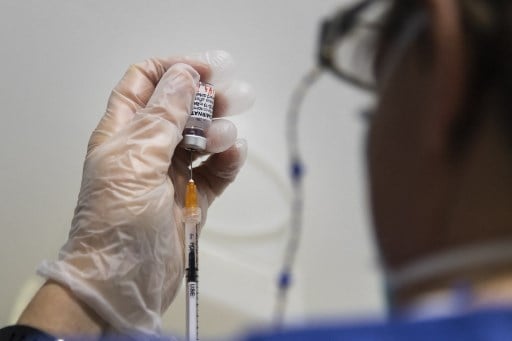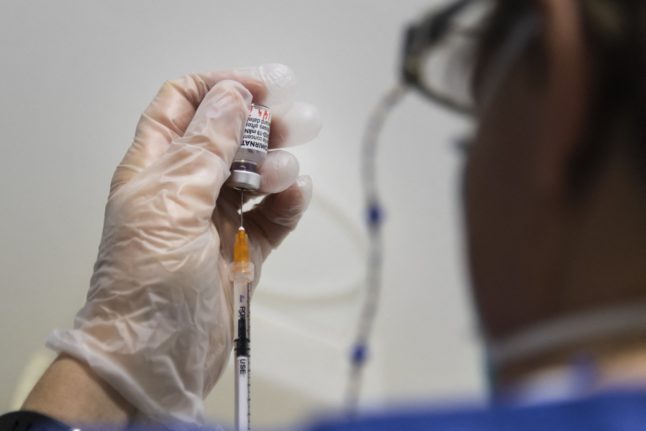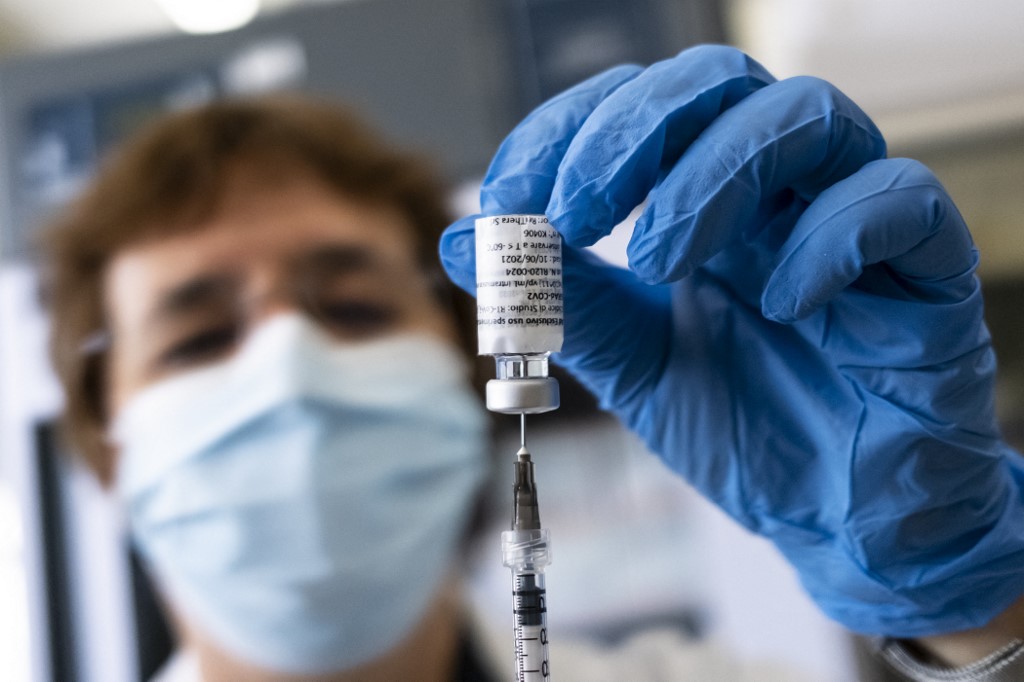New restrictions came into force Monday barring the unvaccinated from restaurants, gyms, swimming pools, theatres, cinemas, sports events and public transport, with only those recently recovered from Covid-19 exempt.
The measures were introduced in the face of a sharp rise in infections in Italy, the first European country hit by coronavirus in early 2020, which has since recorded almost 140,000 Covid-19 deaths.
EXPLAINED: Where you need Italy’s Covid vaccine pass from Monday
At a press conference, Draghi emphasised that despite the rising cases – another 100,000 were reported on Monday – the situation was different from last winter when the vaccination campaign had yet to begin and lockdowns were required to stop hospitals becoming overwhelmed.
“Most of the problems we are facing today depend on the fact that there are unvaccinated people,” he said.
“Unvaccinated people have a much higher chance of developing the disease and severe forms of the disease,” he said, saying they were putting hospitals under pressure – and urging “all the Italians who are not yet vaccinated to do so”.
More than 86 percent of people over the age of 12 in Italy are fully vaccinated, while 23 million of the 60-million-strong population have had a booster jab.
Vaccines are also open to children aged five and over.
The government is also making vaccines obligatory for the over 50s from next month. The new rules dictate that everyone currently aged 50 and over in Italy, as well as anyone due to turn 50 by June 15, 2022, is now required to get a Covid vaccine.
The majority of schools opened Monday for a new term despite calls from headteachers, the doctors’ union and some mayors to delay the return to class for at least two weeks.
READ ALSO: Back to school: What are Italy’s new Covid restrictions in classrooms?
Hundreds of councils across the country kept their schools closed, according to media reports, but Draghi repeated that keeping children in class was a priority.
“We want to be careful, very careful, but also try to minimise the economic and social effects and above all the effects on boys and girls who have been affected more than others by the closures, from a psychological and educational point of view,” he said.
Top virologist Massimo Galli at the Sacco de Milan hospital earlier warned opening schools was “imprudent and unjustified”, while public health expert Walter Ricciardi described the situation as “explosive”.
The high number of cases is also having an economic effect – Trenitalia said Monday it had cancelled 180 regional trains due to staff shortages.
The so-called Super Green Pass showing proof of vaccination or recent recovery is required in almost all public places and on public transport until March 31st, while FFP2 masks are mandatory in many places.
Calendar: When do Italy’s Covid-19 rules change?
Unvaccinated residents on Italy’s small islands, which had warned they risked being cast into “forced exile” by the new rules, have been permitted to travel with a negative Covid test until February 10th for health or educational reasons.




 Please whitelist us to continue reading.
Please whitelist us to continue reading.